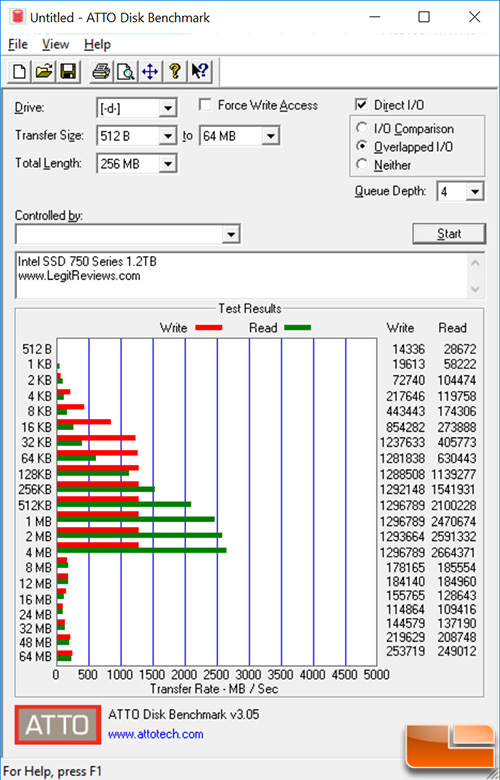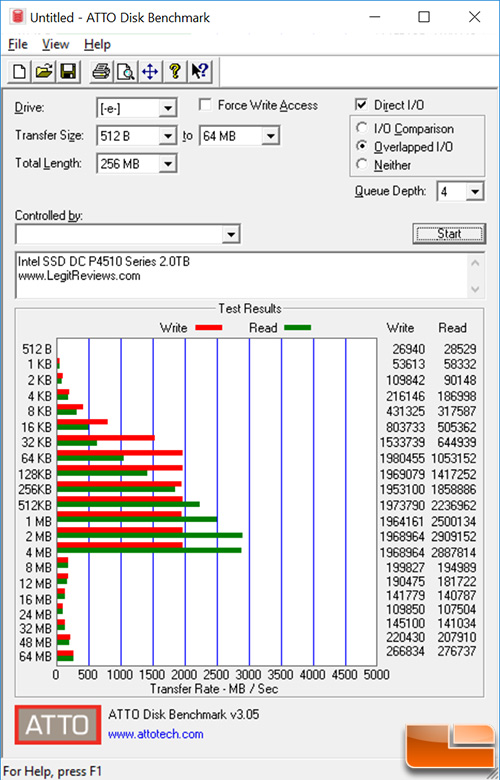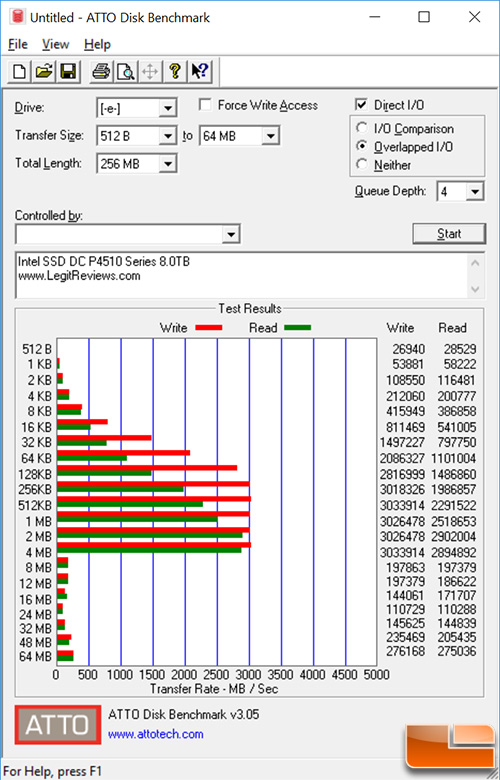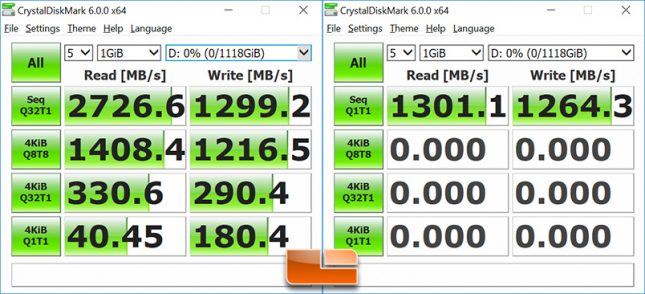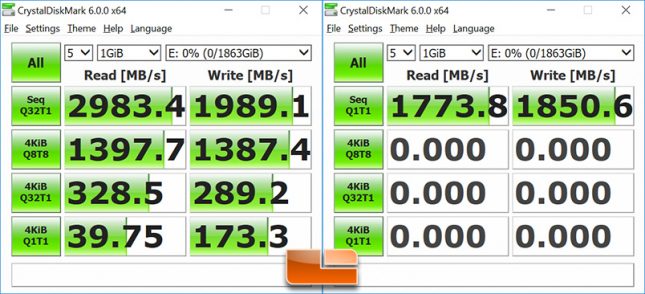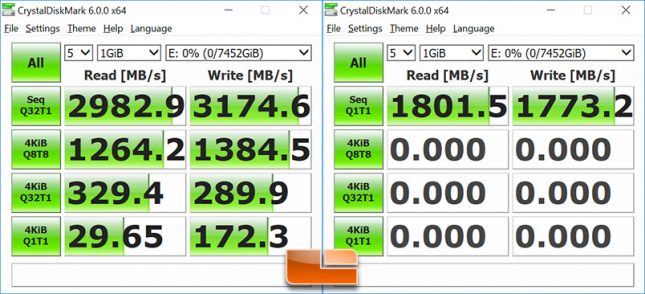Intel SSD DC P4510 NVMe PCIe Review
ATTO & CrystalDiskMark
ATTO v3.05
ATTO is one of the oldest drive benchmarks still being used today and is still very relevant in the SSD world. ATTO measures transfers across a specific volume length. It measures raw transfer rates for both reads and writes and places the data into graphs that can be very easily interpreted. The test was run with the default runs of 0.5KB through 64MB transfer sizes with the total length being 256MB.
Intel SSD 750 Series 1.2TB SSD –
Intel SSD DC P4510 Series 2.0TB SSD –
Intel SSD DC P4510 Series 8.0TB SSD –
Benchmark Results: ATTO showed the Intel SSD DC P4510 8TB drive reaching speeds of up to 3033 MB/s read and 2902 MB/s write in the standard overlapped I/O benchmark. This drive is rated at up to 3200 MB/s max sequential read and 3000 MB/s max sequential write, so we came up just shy of those scores on our test platform. The 2TB drive is rated at 3200 MB/s read and 2000 MB/s write and we managed to hit 2909 MB/s read and 1980 MB/s write, which is closer. We hit just shy of 2700 MB/s read and 1300 MB/s write on the Intel SSD 750 Series 1.2 TB drive from 2015, so the write performance is much better and the sequential read performance is barely better.
CrystalDiskMark 6.0.0 x64
CrystalDiskMark is a small benchmark utility for drives and enables rapid measurement of sequential and random read/write speeds. Note that CDM only supports Native Command Queuing (NCQ) with a queue depth of 32 (as noted) and shows the highest score of five runs.
Intel SSD 750 Series 1.2TB SSD –
Intel SSD DC P4510 Series 2.0TB SSD –
Intel SSD DC P4510 Series 8.0TB SSD –
Benchmark Results: The Intel SSD DC P4510 8TB drive reached 2982 MB/s read and 3175 MB/s write in the standard sequential write test. The smaller Intel SSD DC P4510 2TB drive came in at a comparable 2983 MB/s sequential read speed, but lower at 1989 MB/s on the sequential write test. Oddly enough, the 4K QD1 random read performance on the 8TB drive was found to be 25% slower, while the 4K QD1 random write speeds were basically the same.
Let’s look at some other benchmarks!

